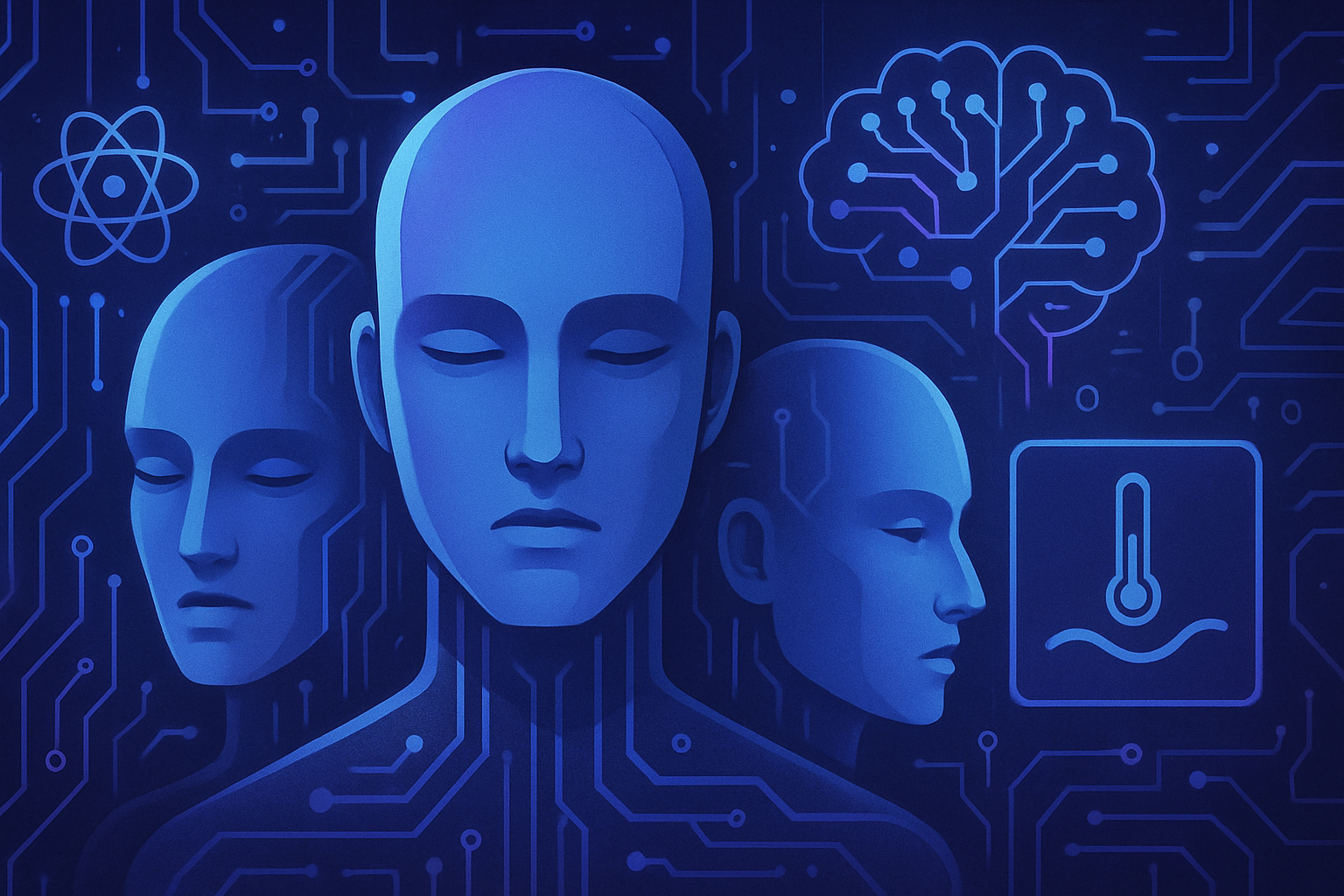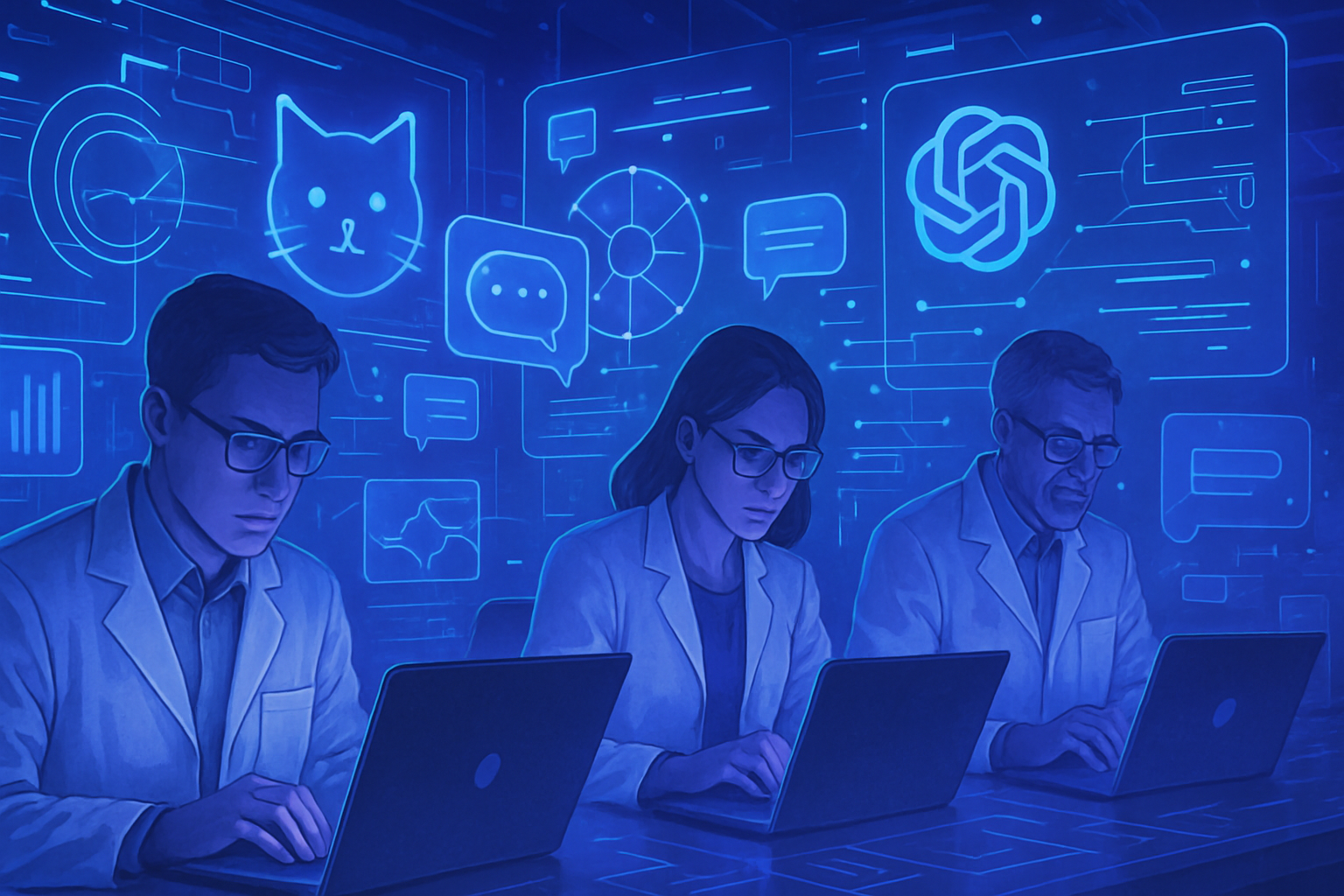Google’s MedGemma AI models signal a significant advancement in the healthcare field. They redefine the standards of medical assistance through their analytical capabilities. These tools allow for the integration of images and medical data. This capability facilitates early and accurate diagnosis, often a vital requirement in the care journey. A boon for hospitals with limited resources. Healthcare professionals can now access cutting-edge technologies without prohibitive costs. The accuracy of these models could transform medical practices.
Google’s MedGemma AI models in the healthcare sector
Google recently announced the availability of its AI models MedGemma 27B and MedSigLIP as open-source resources. This initiative aims to provide developers, hospitals, and researchers with powerful tools to improve healthcare. Unlike traditional systems, these models can be downloaded, modified, and integrated into specific environments.
A revolutionary model: MedGemma 27B
The flagship model, MedGemma 27B, stands out for its ability to analyze not only medical texts but also medical images. This innovation allows for the interpretation of x-rays, pathology slides, as well as complex and extensive patient records. Thanks to its advanced architecture, this model mimics the thought process of a practitioner, providing valuable assistance to healthcare professionals.
On the MedQA benchmark, the model achieved a score of 87.7%, positioning this technology close to other models that are much more expensive. For healthcare systems, often constrained by tight budgets, this advancement represents significant transformational potential.
MedGemma 4B: Performance and accessibility
The model MedGemma 4B, while less powerful in terms of size, is not to be overlooked, achieving a score of 64.4% on the same evaluations. This makes it a promising candidate in its category. In reviews by certified radiologists, 81% of the radiology reports produced were deemed sufficiently accurate to guide clinical decisions.
MedSigLIP: The ally of medical images
In parallel, MedSigLIP has been designed to process medical images with specific expertise. With its 400 million parameters, this model, although lightweight compared to other AI solutions, can identify underlying patterns in a variety of images, such as x-rays, tissue samples, and photos of skin conditions.
MedSigLIP establishes a link between text and images. When confronted with an x-ray, it can find similar cases in a database while considering their medical relevance. This function makes it a valuable tool for research and diagnosis.
Adoption by healthcare professionals
Initial feedback from healthcare professionals is promising. For example, in Massachusetts, the company DeepHealth is already experimenting with MedSigLIP for the analysis of chest x-rays. Early results show an ability to detect anomalies, thus serving as a safety net for radiologists who are often overwhelmed.
At Chang Gung Memorial Hospital in Taiwan, researchers have consistently found that MedGemma effectively interacted with traditional Chinese medical texts, offering accurate responses to questions posed by medical staff. A notable feedback comes from Tap Health in India, which highlighted the reliability of MedGemma in clinical contexts.
Advantages of open-source for the healthcare sector
Google’s decision to make these models available under an open-source license fits into a strategy aimed at addressing the specific requirements of the medical field. In an environment where patient data protection is paramount, hospitals can manage MedGemma on their own servers, thus providing complete control. This ensures that the stability and repeatability of results remain constant, a vital aspect in medical research.
It is worth noting that while these models demonstrate good performance, they do not replace the clinical judgment of doctors. The use of these tools requires human oversight and careful validation before any real application. Despite their impressive results, AI systems can produce errors, particularly in specific cases.
Accessibility of advanced technologies
The MedGemma models are designed to operate on single graphics cards, and the smaller version is even adaptable for mobile devices. This accessibility opens new avenues for AI applications in the field, particularly in areas where advanced computing technology is limited.
Faced with growing challenges related to staff shortages and increased patient workloads, these AI tools can provide valuable assistance. Their benefits lie not in substituting human experts, but in their ability to enrich and streamline their work.
To explore the implications of AI in various sectors, the AI & Big Data Expo will take place in Amsterdam, California, and London, bringing together industry leaders.
For more information on the impact of AI in different fields, see the following articles: business leaders on AI, the rise of generative AI, the implications of Trumponomics, Elon Musk’s improvements to Grok, and Taylor Swift’s revelations and other AI-related topics.
Frequently Asked Questions about Google’s MedGemma AI models in the healthcare sector
What are the main AI models offered by Google for healthcare?
Google primarily offers the MedGemma 27B model and the MedSigLIP model. MedGemma 27B is capable of analyzing both medical texts and images, while MedSigLIP specializes in understanding medical images.
How do MedGemma models improve medical diagnostics?
MedGemma models process a large amount of medical information simultaneously, such as x-rays, medical history, and laboratory analyses, thus enabling the identification of patterns and anomalies that doctors might miss.
Are these models accessible to healthcare professionals?
Yes, MedGemma AI models are open-source, allowing hospitals, researchers, and developers to download, modify, and use them according to their specific needs.
What are the implications of open-source for hospitals?
By making the models open-source, Google allows hospitals to maintain their patient data internally and customize the models according to their specific environment without the risk of disclosing sensitive information.
How do MedGemma and MedSigLIP compare to more expensive AI solutions?
Despite significantly lower operating costs, MedGemma models exhibit performance comparable to that of much more expensive AI systems, making them accessible even for financially struggling healthcare systems.
Can AI models replace doctors in diagnosis?
No, AI models like MedGemma are designed to assist doctors. They require human validation and decisions informed by qualified healthcare professionals.
How does MedSigLIP contribute to the analysis of medical images?
MedSigLIP has been specifically trained to analyze medical images and can establish correlations between images and reports, facilitating the search for similar cases in a medical database.
What advantages do developing countries gain with the use of MedGemma?
Developing countries can benefit from advanced medical tools without prohibitive costs, allowing them to tackle local health challenges in an innovative and effective manner.
How do these models handle sensitive patient data?
As open-source models, they can run on internal servers, allowing hospitals to maintain full control over their patient data without the risk of leaks.
What role can AI play in training medical students?
AI, like the MedGemma models, can be used as an educational tool to train students in data analysis and decision-making based on realistic medical scenarios.






